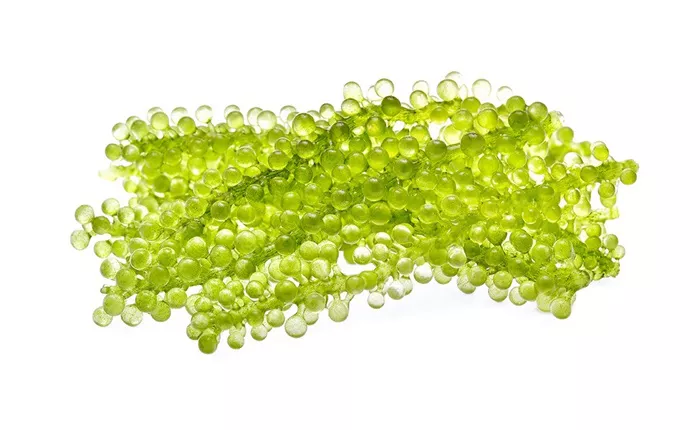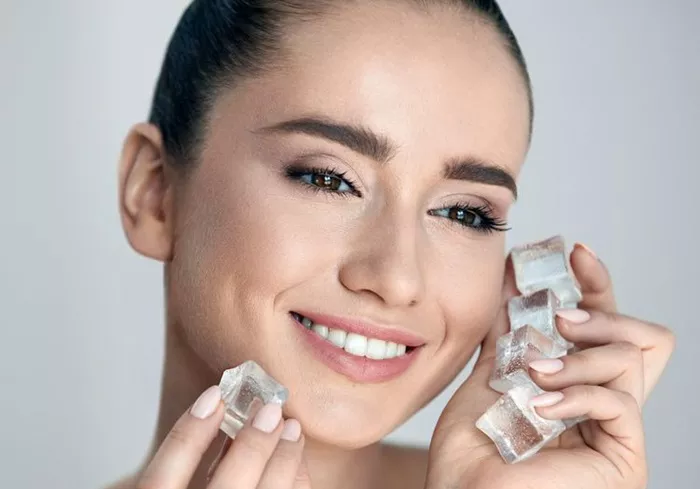Algin, also known as sodium alginate, is a natural polysaccharide derived from the cell walls of brown seaweed. It has gained significant attention in the skincare industry due to its versatile properties and benefits. This article will explore the various aspects of algin, including its composition, functions in skincare formulations, benefits for the skin, and potential concerns.
Composition of Algin
Algin is a complex carbohydrate that belongs to a class of compounds known as polysaccharides. It consists of two primary components: mannuronic acid and guluronic acid. These sugars are linked together in varying sequences, which contributes to algin’s unique physical properties. The molecular structure allows algin to form gels when combined with water or certain ions, particularly calcium. This gelling ability is one of the reasons why algin is widely used in cosmetics and personal care products.
Sources of Algin
The primary source of algin is brown algae, which thrive in marine environments. Common species that produce algin include:
Laminaria: Often referred to as kelp, this type of seaweed is rich in algin.
Ascophyllum nodosum: Another type of brown algae known for its high alginate content.
Fucus vesiculosus: Commonly known as bladderwrack, it also contributes to algin production.
The extraction process typically involves harvesting the algae, washing it to remove impurities, and then treating it with alkaline solutions to isolate the alginate.
Functions of Algin in Skincare
Algin serves multiple functions in skincare formulations, making it a valuable ingredient for various products. Its primary roles include:
1. Hydration
One of the standout features of algin is its ability to retain moisture. When applied to the skin, it forms a film that helps prevent water loss while attracting moisture from the environment. This property makes algin an excellent choice for hydrating products aimed at dry or dehydrated skin.
2. Thickening Agent
Algin acts as a thickening agent in cosmetic formulations, improving texture and stability. By enhancing viscosity, it contributes to a more luxurious feel in creams and lotions. This thickening effect also helps maintain product consistency over time.
3. Gelling Agent
Due to its ability to form gels upon contact with water or certain salts, algin is often used in gel-based products such as masks and serums. This gelling property not only improves application but also enhances the sensory experience during use.
4. Stabilizer
In emulsions (mixtures of oil and water), algin helps stabilize the formulation by preventing separation. This ensures that the product remains effective and aesthetically pleasing throughout its shelf life.
5. Film-Forming Agent
Algin can create a protective barrier on the skin’s surface, which helps shield against environmental stressors such as pollution and UV rays. This film-forming capability can enhance the overall efficacy of skincare products.
Benefits of Algin for Skin Health
The incorporation of algin into skincare formulations offers numerous benefits for various skin types and concerns:
1. Soothing Properties
Algin possesses soothing properties that can help calm irritated or sensitive skin. Its gentle nature makes it suitable for individuals with conditions such as eczema or rosacea.
2. Anti-Aging Effects
By promoting hydration and improving skin elasticity, algin can contribute to a more youthful appearance. Its ability to plump the skin may help reduce the visibility of fine lines and wrinkles.
3. Enhanced Skin Texture
Regular use of products containing algin can lead to improved skin texture. The hydrating effects help create a smoother surface, making it an ideal ingredient for those seeking a refined complexion.
4. Suitable for All Skin Types
Algin is generally well-tolerated by all skin types, including oily and acne-prone skin. Its lightweight nature means it won’t clog pores while still providing essential hydration.
See Also: Snail Mucin: The Slimy Ingredient Dominating Beauty
Potential Concerns with Algin
While algin is widely regarded as safe for use in cosmetics, there are some considerations to keep in mind:
1. Allergic Reactions
Although rare, some individuals may experience allergic reactions to algin or related compounds derived from seaweed. It’s advisable to conduct a patch test before using new products containing this ingredient.
2. Comedogenicity
Algin has a comedogenic rating that varies depending on formulation; however, it is generally considered low risk for clogging pores when used appropriately in skincare products.
3. Source Sustainability
As with many natural ingredients derived from marine sources, sustainability is a concern with algae harvesting practices. Choosing brands that prioritize sustainable sourcing can mitigate this issue.
How Algin Is Used in Skincare Products
Algin can be found in various types of skincare products due to its multifunctional properties:
1. Masks
Algin is commonly used in both peel-off masks and hydrating gel masks due to its gelling properties. These masks provide intense hydration while forming a protective barrier on the skin.
2. Creams and Lotions
In creams and lotions, algin enhances texture while delivering hydration and soothing benefits. It helps create a smooth application experience while ensuring long-lasting moisture retention.
3. Serums
Serums often contain concentrated active ingredients alongside algin for added hydration and stability. The film-forming nature of algin can enhance the absorption of other beneficial ingredients.
4. Cleansers
Some cleansers incorporate algin for its thickening properties, creating a rich lather while maintaining moisture levels during cleansing.
Conclusion
In summary, algin is a remarkable ingredient that offers numerous benefits for skincare formulations. Its hydrating, soothing, and stabilizing properties make it suitable for various products aimed at addressing diverse skin concerns. As consumers become increasingly aware of ingredient efficacy and safety, algin’s role in skincare will likely continue to grow. Incorporating products with algin into your skincare routine can enhance hydration levels while improving overall skin texture and health—making it an essential component in modern cosmetic formulations.
Related Topics
When Do You See Results From Skin Care?


































